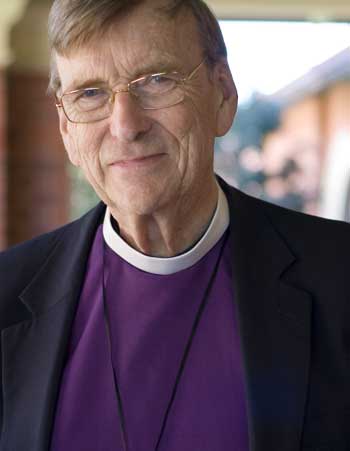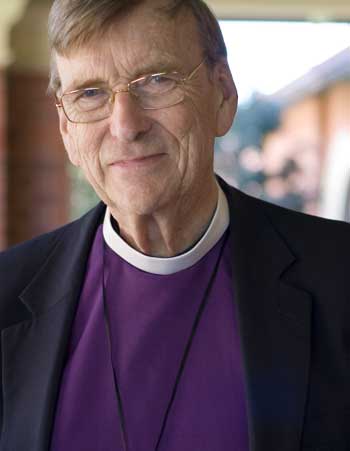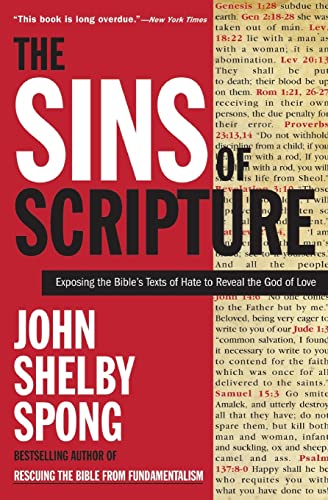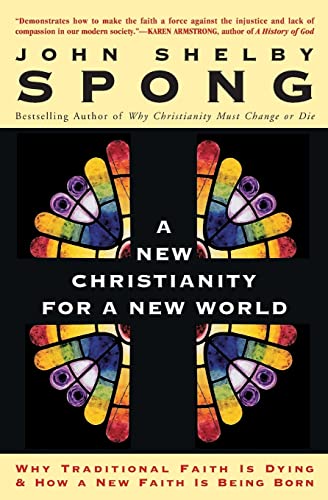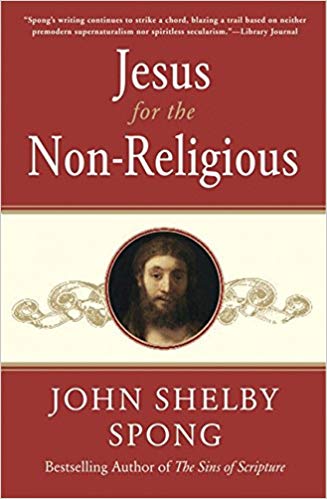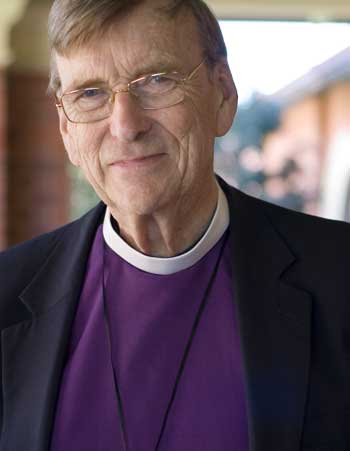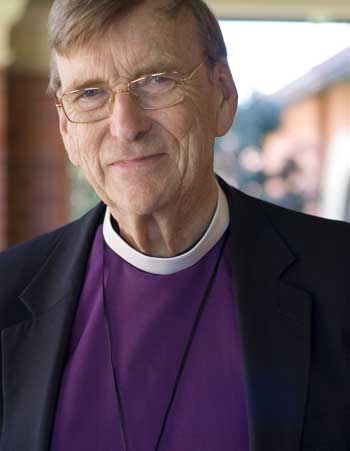This video is the second of Bishop John Shelby Spong's lectures at the "Future of the Progressive Church" conference held on August 3, 2013 at the Community Christian Church in Springfield, MO.
It has been both an emotional and a political roller-coaster. The television newscasters and the print media informed us that a political debate was underway as to whether or not the armed might of this country should be used to punish the Syrian government for violating the universal condemnation against chemical warfare that has governed the world since the horror of gas in the trenches in World War I. Pictures were released of small children, who had been the victims of sarin gas. The pictures were chilling. I enquired of a medical expert about the effects of sarin gas on the human body. He shuddered even to talk about it. His sentences were short and declarative. “It is deadly.” “There is no protection.” “Suffering is intense.” “Death is inevitable.” For almost one hundred years, despite brutal wars, both worldwide and local, with weapon enhancements like atomic power and cruise missiles, the prohibition against chemical warfare has still been generally adhered to by the nations of the world until this moment. Now the Syrian government has breeched this taboo, in an action widely believed to have been ordered by its president, Bashar al-Assad. I did not disagree with the official statement of facts and yet the debate itself struck me as deeply irrational.
21st century Christianity is thus wedded to the world view of its 1st century scriptures, its 4th century creeds and its 13th century liturgies. Consequently Christianity presents itself to potential modern believers encased in a series of doctrinal and liturgical forms, undergirded by a theological point of view that communicates almost nothing to those people who gather in church to worship. Why is there any surprise that the number of worshipers is in steep decline? Modern Christianity offers only two alternatives. The first is to close our minds to the explosion of knowledge in order to build a protective fortress around the religious formulas of antiquity.
John Shelby Spong Question & Answer
Nina Brock from Ovando, Montana, writes: Question: Your comment in a recent column about Paul not being able to say the Nicene Creed
Now Available in Paperback!
The Fourth Gospel was designed first to place Jesus into the context of the Jewish scriptures, then to place him into the worship patterns of the synagogue and finally to allow him to be viewed through the lens of a popular form of first-century Jewish mysticism.
“Can Christianity Survive the Prejudice of Christians? A Revolution in Faith and Ethics” presented by John Shelby Spong from Vann Center for Ethics on Vimeo
Hosted by Kathy Kirk
Rarely is the Bible perceived as a tool of transformational change; yet it is. As humanity moves deeper into a time of conscious awakening, traditional Bible interpretations become stepping stones illuminating paths of greater understanding. The special guest for this program is Bishop John Shelby Spong.
A pre-eminent voice for liberal Christianity, John Shelby Spong was the Bishop of the Episcopal Diocese of Newark for 24 years before his retirement in 2000. His admirers acclaim his making contemporary theology accessible to the ordinary lay person—he's considered a champion of an inclusive faith by many both inside and outside the Christian church.
It still has magic power. Across the Western world hearts beat lighter during the Christmas season, generosity expands and romance overflows its normal boundaries.
The events in the life of Jesus of Nazareth did not happen in a vacuum, nor are these events history as history is now defined.
The overwhelming probability is that the familiar details of the cross are not the result of historic memory at all, but are rather liturgical interpretations of who it was who died on the cross and what his death meant. A quick analysis of the details from this narrative reveals that they were drawn not from the memory of eye witnesses, but from the scriptures of the Jewish people, primarily from Psalm 22 and Isaiah 53. So even the central story of the final events in Jesus' life now looks more like the work of an interpretative imagination than it does the work of a historian.
The Bible contains many passages that believers and nonbelievers alike would recognize as appalling theology. Whether these texts are used to discriminate, oppress,
A New Christianity for A New World: Why Traditional Faith Is Dying and How a New Faith is Being Born
Christianity will not be a viable belief system for honest people in the contemporary world, writes John Shelby Spong, until it drops a few outmoded ideas--for instance, belief in a supernatural God who reveals Himself from outside creation.
Writing from his prison cell in Nazi Germany in 1945 Dietrich Bonhoeffer, a young German theologian, sketched a vision of what he called "religionless Christianity." In this book, John Shelby Spong puts flesh onto the bare bones of Bonhoeffer's radical thought. The result is a strikingly new and different portrait of Jesus of Nazareth—a Jesus for the non-religious. Spong invites his readers to look at Jesus through the lens of both the Jewish scriptures and the liturgical life of the first-century synagogue. Dismissing the dispute about Jesus' nature that consumed the church's leadership for the first 500 years of Christian history as irrelevant, Spong proposes a new way of understanding the divinity of Christ: as the ultimate dimension of a fulfilled humanity. Traditional Christians who still cling to dated concepts of the past will not be comfortable with this book; however, skeptics of the twenty-first century will not be quite so certain that dismissing Jesus is the correct pathway to walk. Jesus for the Non-Religious may be the book that finally brings the pious and the secular into a meaningful dialogue, opening the door to a living Christianity in the post-Christian world.
In the preparation required to write my new book on eternal life, I soon discovered that this subject raised all of the contemporary theological issues that threaten to destroy Christianity as we have known it. It was clear that I would have to turn the traditional religious approach around. I had to read the modern critics for whom the religious concepts of the past make no sense. I also had to come to a new understanding of what life itself means. Life after death cannot possibly be contemplated until one understands the wondrous and even mysterious dimensions of life before death.
Who was Charles Moulton? His name is not a household word but his creation is. Moulton is the man who in 1941 launched the career of a comic strip character who was know as Wonder Woman. Moulton was a psychologist. He was also the inventor of the lie detector. In an autobiographical note in the Wonder Women Archives Vol. 2, he describes himself as "an early feminist," who believed that "a woman's rightful place was as a world leader, not servant or helpmate."
At the end of the Cold War, the United States, for the first time in history, had the only remaining first-rate military capability left in the world. We had the mightiest Navy ever to roam the seas, a supreme Air Force, the ever-prepared Marines, and the world's largest and most mobile land army, all of which were equipped with pinpoint missiles and atomic weapons of mass destruction. No nation would dare to challenge such an arsenal. That was the hope and the dream. From our vantage point 10 years later, one can only wonder what happened to that dream. Welcome to the world of terrorism and suicide bombers.

